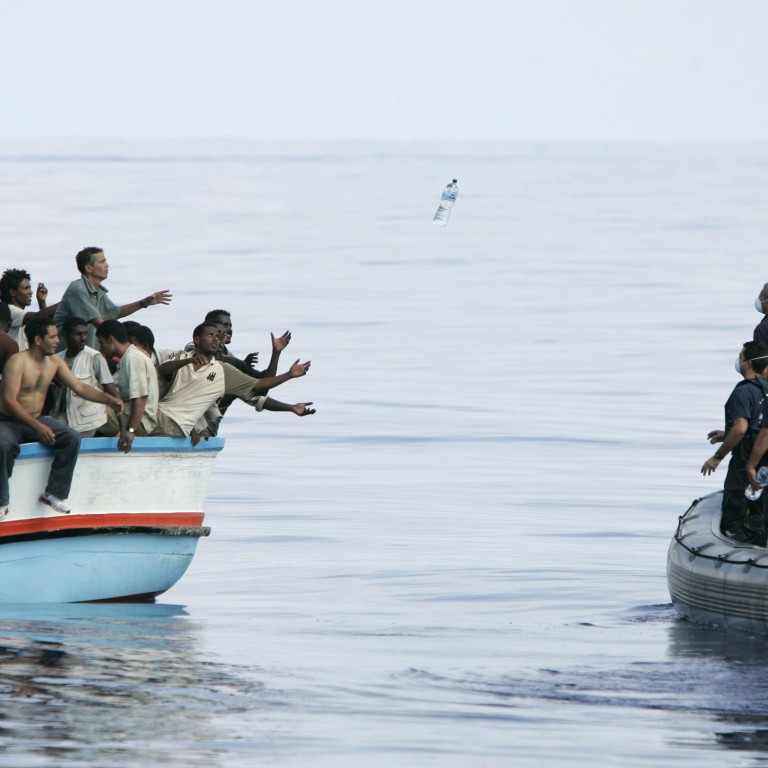
Europe's migrant challenge: sea change needed
Claudia Astarita says European countries need to rise above national interests and work out a sustainable strategy to tackle the migrant crisis
Europe needed to witness another catastrophic shipwreck before finally approving a joint migrant-rescue mission in the Mediterranean. Up to 800 people died last weekend after a boat crowded with migrants capsized in the sea north of Libya. On Monday, another boat sank off the Greek island of Rhodes.
With European Union countries busy discussing how to strengthen search and rescue operations in the Mediterranean, nobody seems interested in identifying a sustainable strategy to deal with the consequences of migration.
Mass movements of poor and helpless people are one of the most serious challenges of our time. It is not a new phenomenon, but no country has managed to find a solution so far. Governments, international organisations and NGOs are always ready to offer support when a tragedy occurs, but they have done little to prevent them in the first place.
It is surprising that even a country like Italy has yet to formulate a sustainable and far-sighted migration plan for discussion with the rest of Europe. For purely geographical reasons, Italy is, together with Spain, Greece and Malta, a favourite destination for migrants. According to the UN High Commission on Human Rights, nearly 219,000 refugees and migrants tried to reach Europe last year. At least 3,500 died. Some 35,000 more refugees have followed in 2015.
In Italy, the sheer number of refugees, coupled with austerity measures implemented to tackle an ongoing economic crisis, have ensured that migrant-related issues are heavily politicised. Interior Minister Angelino Alfano has proposed destroying empty vessels before they sail, and is now seeking the international community's approval to avoid it being interpreted as a declaration of war.
If Europe does not find a new way to face the migration challenge, the April 19 tragedy risks being just another disaster that killed hundreds of desperate people. The Italian-led operation Mare Nostrum rescued over 160,000 migrants in 2014, but was stopped in October due to budget constraints and EU criticism that the programme itself was encouraging migrants to cross the Mediterranean.
Which is the real problem? Migrants or the criminals trafficking them? When facing a tragedy in the making, the only priority is to save as many people as possible: no matter what politicians claim, all lives have the same value. Bombing vessels and refusing to allow them to dock at European piers should not be an option in a region used to proudly declaring its human rights standards.
Once again, the problem is European and the solution needs to come from Brussels. Refugee resettlement and relocation responsibilities should be shared; regional agreements promoted to favour information exchanges with the countries from where most vessels depart; severe punishments meted out to human traffickers; and a common migration policy defined.
If Europe wants to continue claiming to represent the world's best example of regional integration, it needs to prove it is mature enough to face today's migration challenge by going beyond members' national interests.
